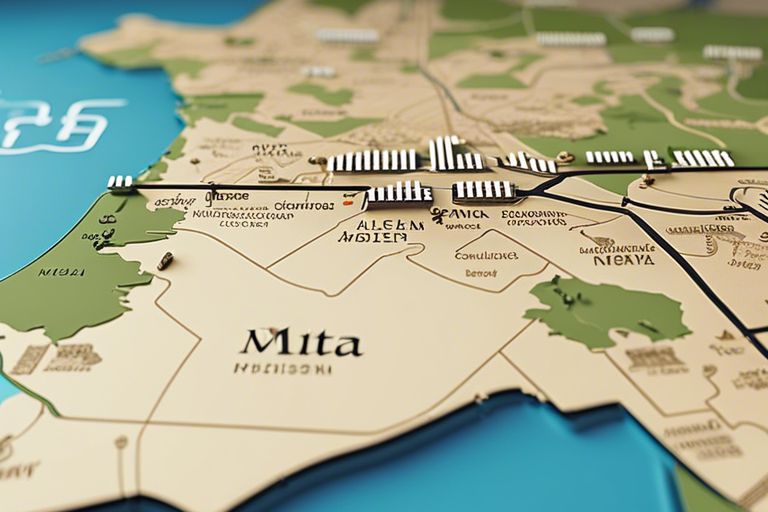Navigating Malta's Tax Landscape

Many businesses and individuals are drawn to Malta for its favorable tax environment, but navigating the intricacies of the Maltese tax landscape can be challenging. Understanding the various tax incentives, rates, and compliance requirements is crucial for maximizing benefits and avoiding costly pitfalls. In this informative blog post, we will probe into the key aspects of Malta’s tax system, providing you with the knowledge and tools needed to successfully navigate and optimize your tax obligations in this Mediterranean island nation.
Tax Structure in Malta
Personal Income Tax
Income tax in Malta is determined on a progressive tax rate system, ranging from 0% to 35%. Your residency status and source of income play a significant role in determining your tax obligations. Malta offers various tax incentives for individuals, such as the possibility of beneficial tax rates for high-net-worth individuals relocating to the country.
Corporate Tax Regime
Income tax for corporations in Malta is calculated at a flat rate of 35%. This rate is slightly higher than the EU average but is offset by Malta’s imputation system, which allows companies to issue dividends with a tax credit. This system provides companies with the opportunity to lower their effective tax rate and is a key factor in Malta’s attractiveness as a business destination.
Indirect Taxation
There’s a complex web of indirect taxes that businesses operating in Malta must navigate. Understanding the nuances of value-added tax (VAT), customs duties, and excise duties is crucial to ensuring compliance and avoiding financial penalties.
Value-Added Tax (VAT)
For businesses in Malta, Value-Added Tax (VAT) is a key consideration. VAT is charged on most goods and services at a standard rate of 18%, with reduced rates of 7% and 5% applying to specific items. It’s imperative for businesses to register for VAT if their annual turnover exceeds a certain threshold, currently set at €20,000.
Customs and Excise Duties
One of the critical aspects of indirect taxation in Malta is customs and excise duties. These duties are imposed on goods imported into the country from outside the European Union. Customs duties are based on the value of the goods, while excise duties are imposed on specific products like alcohol and tobacco. Businesses need to comply with customs regulations to avoid delays and additional costs.
With customs and excise duties, businesses must keep meticulous records of imports and exports to ensure accurate payment of duties. Non-compliance can result in hefty fines and even criminal charges. It’s crucial to stay up to date on changes to duty rates and regulations to avoid any issues.
International Tax Considerations
Double Taxation Treaties
To avoid double taxation of income earned in multiple countries, Malta has a network of Double Taxation Treaties in place with over 70 countries. These treaties provide relief to taxpayers by determining which country has the primary right to tax specific types of income, ensuring that income is not taxed twice. It is imperative to understand these treaties when doing business internationally to benefit from reduced withholding tax rates and other provisions.
EU Directives and Regulations
Under EU Directives and Regulations, Malta adheres to the principles of the EU Single Market, allowing for the free movement of goods, capital, services, and people within the EU. This harmonization of tax laws helps businesses operating in multiple EU countries to navigate tax obligations seamlessly. Understanding the implications of EU Directives and Regulations is crucial for businesses looking to expand within the EU market.
Plus, Malta’s strategic location in the Mediterranean makes it an attractive hub for businesses looking to access both EU and international markets, while benefiting from a competitive tax regime. Understanding the international tax landscape is imperative for businesses to optimize their tax position and remain compliant with global tax regulations.
Tax Incentives and Benefits
Once again, understanding Malta’s tax landscape involves delving into the various tax incentives and benefits offered by the government to attract investors and businesses.
Investment Incentives
The Maltese government provides a range of investment incentives to encourage foreign direct investment in the country. These incentives include tax credits, grants, and subsidies for businesses that meet specific criteria and contribute to the growth of the Maltese economy.
Special Tax Statuses and Schemes
Incentives are also available through special tax statuses and schemes designed to attract high-net-worth individuals, international companies, and expatriates to Malta. These schemes offer benefits such as low tax rates, reduced tax on foreign income, as well as other tax advantages that make Malta an attractive location for relocation and investment.
For instance, the Highly Qualified Persons Rules provide tax benefits to individuals working in specific industries, while the Malta Global Residence Programme offers special tax status to individuals relocating to Malta.
Compliance and Enforcement
Reporting Requirements
For businesses operating in Malta, compliance with reporting requirements is crucial. Companies are required to submit accurate and timely financial statements, tax returns, and other relevant documentation to the Maltese authorities. Failure to meet these obligations can result in penalties and enforcement actions.
Penalties for Non-Compliance
The penalties for non-compliance with tax regulations in Malta can be severe. Failure to submit accurate and timely reports can lead to fines, interest charges, and even criminal prosecution. It is necessary for businesses to stay informed about their reporting obligations and ensure full compliance to avoid these consequences.
Enforcement
Malta’s tax authorities have robust enforcement measures in place to ensure compliance with tax laws. They have the power to conduct audits, investigations, and inspections to verify the accuracy of reported information. Cooperation with authorities during these processes can help mitigate potential penalties, while resistance or obstruction can exacerbate the situation. It is advisable for businesses to seek professional guidance to navigate the complexities of Malta’s tax landscape and stay compliant to avoid serious repercussions.
Planning and Consulting
Seeking Expert Advice
Now is the time to seek expert advice when navigating Malta’s complex tax landscape. Consulting with professionals who specialize in Maltese tax laws can provide invaluable insights and guidance for your financial planning.
Tax Planning Strategies
Any effective tax strategy in Malta should involve careful planning and consideration of all available options. By implementing strategic tax planning strategies, individuals and businesses can optimize their tax liabilities while remaining compliant with local regulations.
Planning involves assessing your tax obligations and identifying opportunities for tax optimization. This can include leveraging incentives provided by the Maltese government for certain industries or structuring your investments in a tax-efficient manner.
Plus, it’s vital to stay updated on any changes to Malta’s tax laws and regulations that may impact your financial situation. By proactively planning and adjusting your tax strategy, you can ensure compliance and potentially reduce your tax burden.
Summing up
Considering all points discussed, navigating Malta’s tax landscape requires a thorough understanding of the various incentives and regulations in place. By leveraging the advantageous tax regime, businesses and individuals can optimize their financial strategies and operations to achieve growth and success in this unique jurisdiction. It is crucial to stay informed about updates and changes in tax laws to ensure compliance and maximize opportunities for tax optimization. With the right expertise and guidance, navigating Malta’s tax landscape can lead to significant benefits and opportunities for those willing to explore and take advantage of its favorable tax environment.
Recommended Posts

Financial Aspects of Doing Business in Malta
July 26, 2024

The Rise of Digital Banking Solutions in Malta
July 24, 2024





